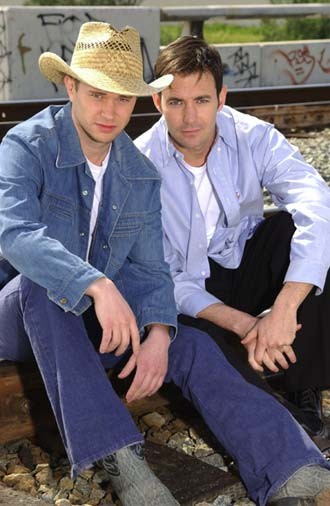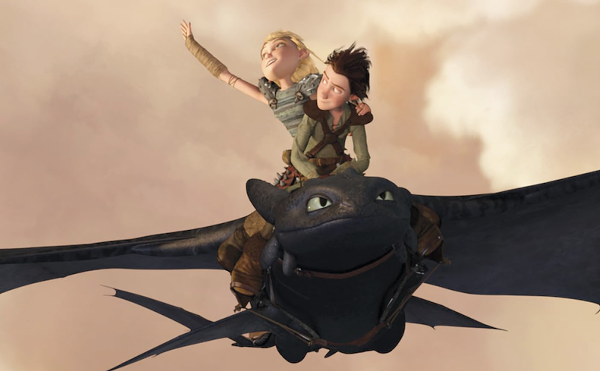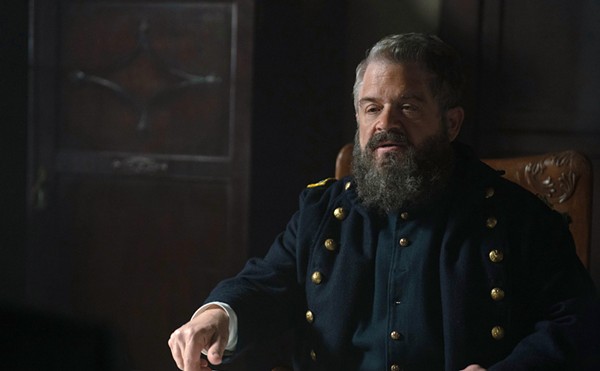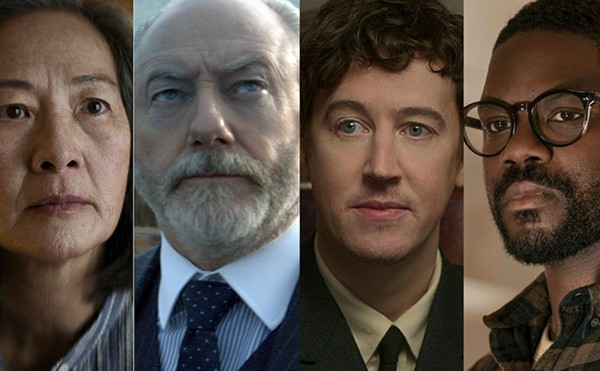| The boys in The Trip. Courtesy photo |
Since the adventures of two guys in a car on an open road occupy less than one-quarter of the screen time in The Trip, writer-director Miles Swain must mean something else by the title of his first feature film. A three-act comic drama in which boy meets boy, boy loses boy, and boy regains boy just in time, The Trip attempts to use the changing relationship between Alan Oakley (Sullivan) and Tommy Ballenger (Braun) as a barometer of the evolution of gay culture in the United States during a crucial 11-year period. A 24-year-old journalist raised to be a repressed Republican by an overbearing military father, Alan undergoes a personal journey toward greater openness and self-awareness, while society at large moves from overt homophobia toward tolerance of alternative sexual identities.
The story begins in Los Angeles in 1973, with the kind of "meet cute" scene obligatory in Hollywood romantic comedies since before Sally met Harry. When Alan encounters Tommy, at a party, he is eager to interview the 19-year-old Texan for a book he is writing about gay history. Tommy, who left his native Seguin in order to be a gay rights activist, is attracted to Alan and misinterprets his interest in him.
"When he first opened his mouth, Judy Garland's purse fell out," says Tommy's flamboyantly swishy friend Michael (Arquette) about Alan, who admits to only an academic interest in homosexuality. "I'm not a fag like you," says Alan to Tommy, but of course, he is. When Alan invites Tommy to his apartment for dinner, the guest brings flowers and expectations of romance. Instead, he is greeted by Alan's ditzy girl friend, Beverly (Irwin). "Ménage à trois?" asks Tommy, hopefully. "Oh no, Alan hates French food," replies Beverly.
| THE TRIP Writ. & dir. Miles Swain; feat. Larry Sullivan, Steve Braun, Sirena Irwin, Alexis Arquette, Ray Baker, Jill St. John (NR) |
No survey of gay experience in the past 30 years can ignore the devastating effects of AIDS, and at the film's conclusion, in Mexico in 1984, Tommy is deathly ill and eager to return home. When, because of his condition, he is not allowed to board a plane to San Antonio, Alan agrees to drive him back. Thus begins the trip within The Trip, but in tone and style it is an odd addendum to what came before. For a film intent on demolishing homosexual stereotypes, The Trip is also curiously dependent on cartoon conventions of Mexicans as lazy, corrupt, and inept.
But everything is grist for Alan's sentimental education, and it comes as no surprise that at the end Alan produces a book to atone for his earlier literary offense. Titled The Trip: A True Story, it is probably as earnest and predictable as this film. •
















